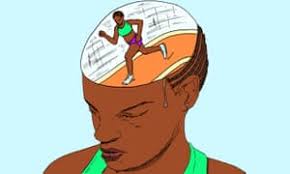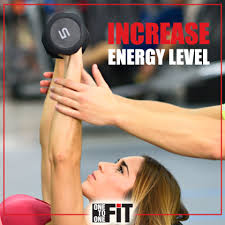Welcome to this series about Exercise. Enjoy the precepts and principles. Enjoy the many benefits of good Exercise. Practice it well.
Often when people hear that exercising improves your energy levels, it seems as though that is counterproductive and cannot be right. After all, exercising requires exerting energy not conserve it. However, it’s true.
Regular exercise goes a long way towards helping to improve your energy levels. In this article, we are going to look into why exerting energy to exercise is beneficial to improving your energy levels.
A study was done at the University of Georgia, which appeared in the March 2008 issue of the Swiss medical journal: Psychotherapy and Psychosomatic showed that exercise does indeed raise energy levels. The study included thirty-six healthy young adults who were leading a sedentary lifestyle and reported feeling persistent fatigue.
The study was divided into three groups, a moderate intensity exercise group, a low-intensity exercise group, and a no exercise group. The study spanned six weeks and those who were exercising did so three times a week for the six-week duration.
The group of individuals who were in the moderate intensity group was required to do twenty minutes of exercise on an exercise bike that was comparable to a fast-paced walk up a hill. This group of people reported a forty-nine percent drop in fatigue at the end of the study.
The group that was in the low-intensity group was required to do twenty minutes of exercise on an exercise bike that was equivalent to a leisurely walk. This group of individuals reported experiencing a sixty-five percent drop in fatigue at the end of the study. The group that was not exercising experienced no change in their levels of fatigue.

Why Does Exercising Work?
When a sedentary individual begins to exercise and be more active, it enhances the blood flow to their muscles. As the muscles are able to get more blood flow, they are also getting more oxygen and nutrients than what they are used to getting. This allows the muscles to improve their ability to produce more energy, which leads to feeling less fatigued and better able to take on the day.
Why Didn’t The Group Who Was Doing A Higher Intensity Exercise Feel Less Fatigued?
In the study above, those who were more active actually experienced less of a decrease in fatigue than those who were in the low-intensity group. This discrepancy is easily explained. If the participants in the moderate activity group didn’t take the time to develop an aerobic base before beginning a higher intensity work out, it would be more physically demanding than if they had.
As a result of the workout being more physically demanding on the muscles, it would leave them feeling more physically drained until their bodies had adapted to the program; whereas, if you began with a low-intensity workout and worked up to higher intensities you wouldn’t have as long of a period of adapting your body to the demands.
While exercising is great for improving energy levels, you don’t need to participate in any major activities to reap the benefits.

Something as simple as taking the stairs instead of the elevator, walking to the store instead of driving or walking down the hall to deliver a message to a coworker instead of emailing can all help you to feel less fatigued and more energized.
Feeling constantly fatigued not only affects your physical health but can also affect your mental health, as you feel less and less inclined to get out and do things.

Start making small changes in your life now, and you will soon find that you have more energy to do all the things you want to do.
For more blogs please go to www.NicksDigitalSolutions.com and choose Nicks blog.
For E-Learning material, please go to www.NicksDigitalSolutions.com and choose E-Learning Shop and, in particular, the Health and Wellness, Pathways to Success or Seniors options.
Nick Thorne is the founder of NicksDigitalSolutions Limited a company that specialises in Education, Training and Writing. He lives in Levin, New Zealand
